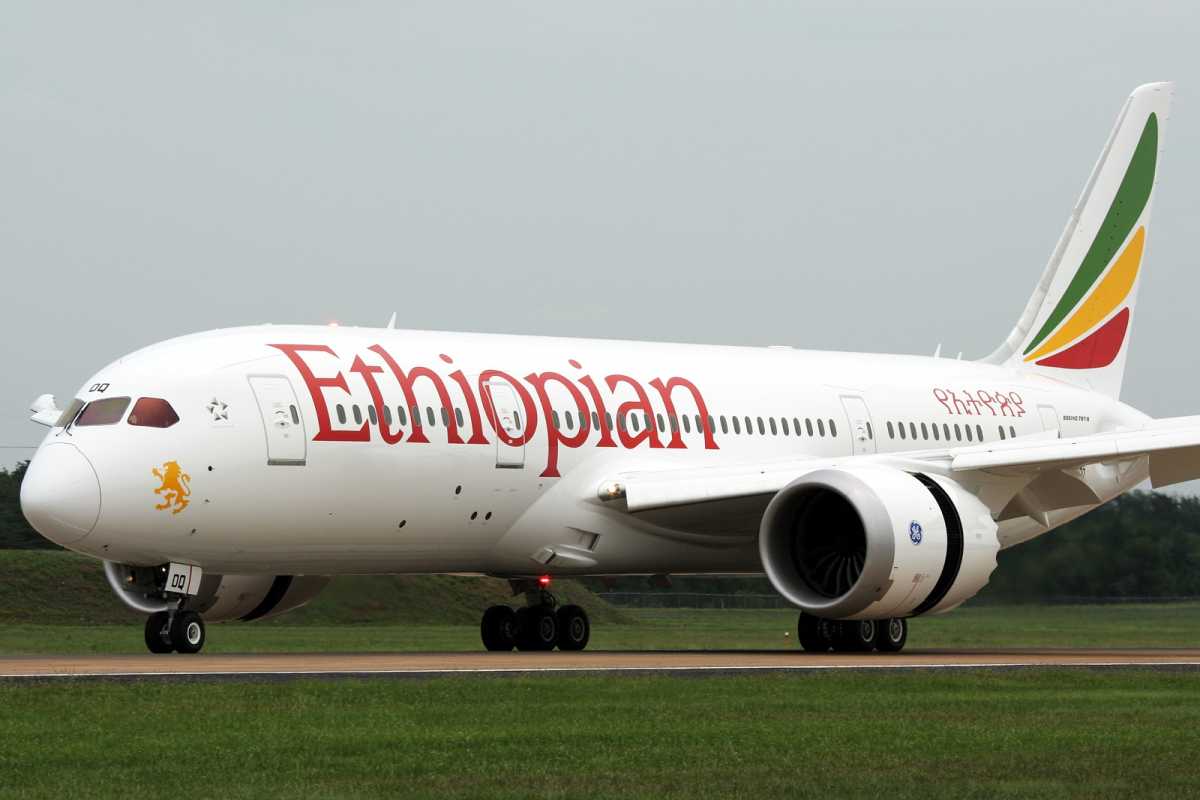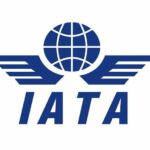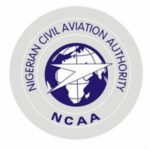Except for the “botched” transactions, Nigeria Air would have been a subsidiary of Ethiopian Airlines, the largest airline in Africa which has started a journey of expanding air connectivity in Africa through partnership and collaboration to set up new airlines on the continent.
In advancing its slogan as, “The New Spirit of Africa”, the airline has made a strategic decision to close the wide connectivity gap on the continent and ensure African airlines are in the forefront of providing air connectivity for Africans.
Mr Esayas WoldeMari Hailu, Vice President of Ethiopian Cargo, who was at a time Managing Director (MD) for International Service, of the airline, hinted in an interview with Daily Trust Saturday about the resolve of the airline, a member of Star Alliance, the world’s largest airline alliance, to open up aviation in Africa and position African carriers to take their rightful place in the African air transportation ecosystem.
Hailu said, “As we speak, 80 per cent of African traffic is taken by non-African airlines. So, all of us put together, we have only 20 per cent. So, we need to attack that 80 per cent.
UNICEF to FG: Prosecute bandits for raping, killing women, children
Flooding: FG to release ecological funds to Ondo, others
“We need to eclipse, 80 per cent should be African airlines and 20 per cent should be non-African airlines. This is our continent, that is our traffic and so for more African countries to come, the traffic which is not in the hands of the African airlines is much more. So, we have a lot more to play with, it’s not as if we have to scramble that same 20 per cent. No! We don’t settle for that, and we want to contribute more than three per cent of the global air traffic, which we are doing now; it’s only three percent.
“That is the reason why Ethiopian Airlines is going to every African country and helping to establish regional national carriers.”
Under its slogan as The New Spirit of Africa, Ethiopian Airlines has become the fastest growing airline in Africa.
The airline stated that in its 77 years of operation it has become one of the continent’s leading carriers, unrivaled in efficiency and operational success.
In addition to its main hub in Addis Ababa, Ethiopia, it is also pursuing its multi-hub strategy through a hub in Lomé, Togo, with ASKY; in Lilongwe, Malawi, with Malawi Airlines; and in Lusaka, Zambia, with Zambia Airways.
Ethiopian Airlines commands the lion’s share of the Pan-African passenger and cargo network operating the youngest and most modern fleet to more than 150 domestic and international passenger and cargo destinations across five continents.
This is why the airline has spread its wings to many African carriers, helping them to establish their national carriers.
In addition to Lomé and Lusaka, it has helped Tchadia in N’Djamena (Chad), Ethiopian Mozambique in Maputo (Mozambique), in addition to acquiring stakes in Guinea’s and Democratic Republic of Congo’s national carriers.
Also, as of June, 2023, Ghana was still in talks with Ethiopian Airlines to help revive the national carrier of the country.
With the take-off of the Single-African Air Transport Market (SAATM) designed to deepen intra-regional connectivity, Ethiopian Airlines has positioned itself to take advantage of the open sky initiative being promoted by the African Union (AU).
Asky
Asky is a national carrier of Togo but managed by Ethiopian Airlines under a management contract which gives Ethiopian Airlines 40 percent. In line with the management contract, key management staff are often Ethiopians appointed by Ethiopian Airlines. The Managing Director is Esaya WoldeMariam.
Other shareholders are Ecobank, BIDC, BOAD, Sakhumnotho Group Holding and other West and Central African private investors.
Malawi Airlines
Malawi Airlines (Malawian Airlines until 2016) is the flag carrier of Malawi, based in Lilongwe and with its hub at Lilongwe International Airport.
It is another airline run under a Joint Venture Agreement (JVA) between the Malawi government and Ethiopian Airlines.
Like Asky, Ethiopian Airlines also has a management contract and owns 49% of the airline. Also, it is noteworthy that the Managing Director is an Ethiopian.
Tchadia Airlines
Tchadia Airlines is the national carrier of Chad based in Ndjamena established in 2018 under a Joint Venture Agreement with Ethiopian Airlines.
Zambia Airways
Like Nigeria Airways, the defunct national carrier of Nigeria, Zambia Airways was liquidated in 1994. How, it was revived again with the help of Ethiopian Airlines and the Zambian Industrial Development Corporation on December 1, 2021.
The shareholding structure was such that the government has a 55% stake in the newly relaunched Zambia Airways with Ethiopian Airlines owning the remaining 45% of the shares.
Stalemate of Nigeria Air
The immediate past administration of President Muhammadu Buhari mulled the idea of bringing back a national carrier to replace the defunct Nigeria Airways.
However, at the twilight of the administration, the Minister of Aviation, Senator Hadi Sirika, unveiled Ethiopian Airlines as the core investor for the airline christened Nigeria Air.
He gave the equity ownership structure of Nigeria Air as Ethiopian Airlines – 49 per cent; Nigerian private investors (SAHCO, MRS and others – 46 per cent) and the federal government five per cent.
While giving the update, Sirika said the Ministry of Aviation on June 10, 2022, received a closed bid by the Ethiopian Airlines Consortium.
He added that, “Few others attempted to submit, but unfortunately could not meet the deadline. Since we did not collect the bids, we are not in a position to say who they are.”
He further said that the Ethiopian Airlines Consortium was declared the preferred bidder and the evaluation team would proceed with contract negotiation and other processes which he hoped to complete by mid-November, 2022.
Ethiopian Airlines is already a household name in the country’s aviation sector and currently operates to no fewer than four locations in Nigeria; connecting passengers to different destinations in its over 120 global network.
However, no sooner than ET was unveiled that the entire industry became engulfed in a cold war as the airline’s operators rejected the proposal. The AON subsequently dragged the federal government to court challenging the shareholding structure.
In a position paper endorsed by 10 AON members, they observed that while, “The national carrier thing is an obsolete idea worldwide, the AON is not opposed to its establishment.”
They, however, said, “We have witnessed deliberate demonisation of Nigerian indigenous airlines in order to win both public and government approval for its establishment. Nigerian airlines which operate under deliberately skewed severe harsh operating environments have all been portrayed as weak as a result.”
They further stated that the process was not transparent and “is shrouded in secrecy and being championed by Nigerians and foreigners unknown to Nigerians and various stakeholders.
“It is pertinent to note that there is no prospectus issued for public scrutiny or investment appraisal in the process of setting up the proposed carrier.
“The so-called national carrier is a private airline being promoted as a national entity using taxpayers and government resources. There is no way an enterprise where the federal government is said to hold five per cent equity can be called a national carrier. Private people should not use the commonwealth of Nigeria for their private business.
“We, in AON, vehemently oppose any decision or action that is tantamount to selling the country’s commonwealth to any foreign airline for free or for peanuts. Both the domestic and international airline operations network and market value when fully utilised are worth over $400bn every five years. Nigeria and Nigerians should be the main beneficiaries of this massive industry.
“Therefore, any foreign airline interested in investing up to 49 per cent into the national carrier, which would eventually give the said foreign carrier unlimited access to our grandfather rights to operate both within and outside Nigeria, should be made to pay nothing less than $200bn in cash to be deposited through the CBN.”
Daily Trust Saturday further reports that Nigeria Air’s take off remained stalled following a court injunction and a subsisting order stopping further action on its establishment.
Experts weigh in on ET-Nigeria Air’s stalemate
Experts in the country’s aviation industry commend Ethiopian Airlines’ (ETs) business strategy of expanding air connectivity in Africa.
According to them, the only challenge lies with the structure adopted in setting up Nigeria Air.
Aviation analyst, Babatunde Adeniji, said, “Their (ET) strategy like any other is the set of choices they make to make them win in the Africa airlines market. They have realised their best chance is to connect African countries and cities to feed their country as a hub. There is no ulterior agenda there other than their self-interest.”
On the problem with Nigeria Air, he said, “I have and will always maintain that the government has no business running businesses generally, especially given our poor record of performance. Granted there are exceptions to every rule, but I doubt this is one of them…The Nigeria Air deal was badly structured to my mind and would not have achieved our national objective, but rather subjugated it.
“The lesson from ET is they have managed to make their strategy work for them…The hub strategy is not new, Virgin Nigeria had a similar hub strategy but we failed to achieve success. In their case they achieved better integration of all the activities required to make it work while we had issues with key stakeholders.”
Capt. Samuel Caulcrick, former Rector of the Nigerian College of Aviation Technology (NCAT), Zaria, Kaduna State, while applauding the strategy of Ethiopian Airlines, which helps to keep money in Africa, stated that he was concerned about the structure for setting up Nigeria Air.
He said, “It is an innovative strategy which helps to keep the money within Africa through collaboration and code sharing. The focus is to empower Africa. African wealth is the sum of the wealth of every part of Africa.
“I had a major issue with that of Nigeria Air. It is the structure I was not comfortable with. I would have wanted Nigeria Air to be owned 100 per cent by the government and get Ethiopian Airlines to manage it.”
He observed that ET had succeeded largely because of the strong backing of the government of Ethiopia which provided bank guarantee at less than two per cent interest against Nigerian airlines accessing funds at 25 to 30 per cent.
On his part, the General Secretary of Aviation Roundtable, Mr Olumide Ohunayo, said ET remained a success story in Africa with the success extended to smaller countries by way of setting up their national carriers.
However, he noted that the proposed partnership with Nigeria Air in a vibrant domestic airline market like Nigeria could trigger the death of the domestic carriers.
He said, “No doubt it (Ethiopian) is the most successful and profitable airline in Africa, and it has been consistently profitable and expanding. If you look at what they have done, they have gone to smaller countries which can hardly sustain an airline. These countries you have highlighted, these are small countries that don’t even have domestic airlines, so they don’t have a vibrant domestic market.
“That strategy has worked well, they are using it to build Addis Ababa as a hub and as a centre for business and connection which also helps the government.
“In all of these airlines, they have Ethiopians as the MDs, as well as other top management staff. Maintenance of aircraft of those airlines is done by Ethiopian Airlines, and even leasing of equipment.
“But in Nigeria, we are different. We have more than 10 vibrant domestic carriers. There’s nothing Ethiopian Airlines wants to bring to the domestic market or rather they can start a domestic airline with Nigerian investors. They are allowed, nobody is going to stop them. All they need to own in that airline is 49 per cent and Nigeria owns 51 per cent. But coming to the Nigerian government using Nigeria Air is something we oppose, because you are tying the hands of all other investors who have invested in Nigeria, who have put their sweat and hope, you are tying them to give Ethiopian an advantage.”
On his part, aviation analyst, Group Capt John Ojikutu (Rtd), said, “The only option for Nigeria is not a national carrier but two flag carriers merged from the existing carriers’ (Air Peace, Arik, Aero, etc) fleet, one for intercontinental and the other regional and continental. These must be subscribed to by credible Nigerian investors (minimum 25 per cent) and the Nigerian citizens (25 per cent) in the Nigerian stock market. Any other or different thought is to be moving in the same cycle that started in 1992 without ending.”
Our objective in establishing Nigeria Air – ET CEO
The Group Chief Executive Officer (CEO) of Ethiopian Airlines, Mesfin Tasew, stated that the process to establish Nigeria Air was on course.
He said, “We are establishing the Nigeria Air in partnership with the Nigerian government and institutional investors in Nigeria.
“The prime objective is to ensure Nigeria has a flag carrier. Nigeria is a big country, but unfortunately it doesn’t have a strong airline. In this airline (Nigeria Air), ET will have 49 per cent share and at the same time it will have a management contract. Ethiopian Airlines will manage it to be successful.
“We are very eager to see this airline fly to serve the Nigerian market, connecting the domestic market to the international market.”

 Join Daily Trust WhatsApp Community For Quick Access To News and Happenings Around You.
Join Daily Trust WhatsApp Community For Quick Access To News and Happenings Around You.


